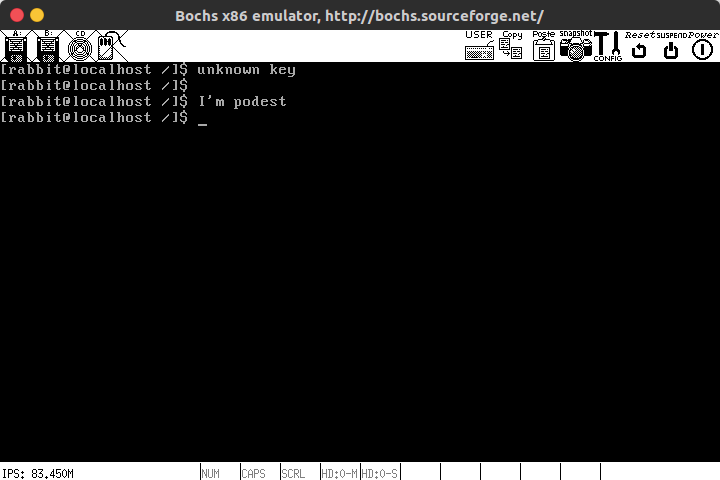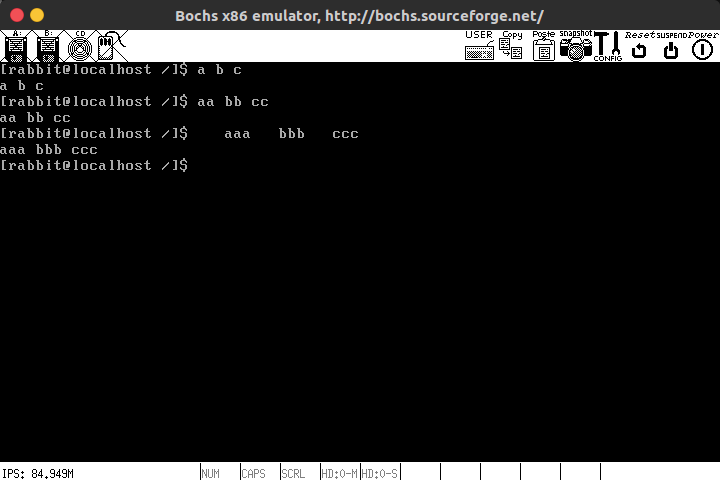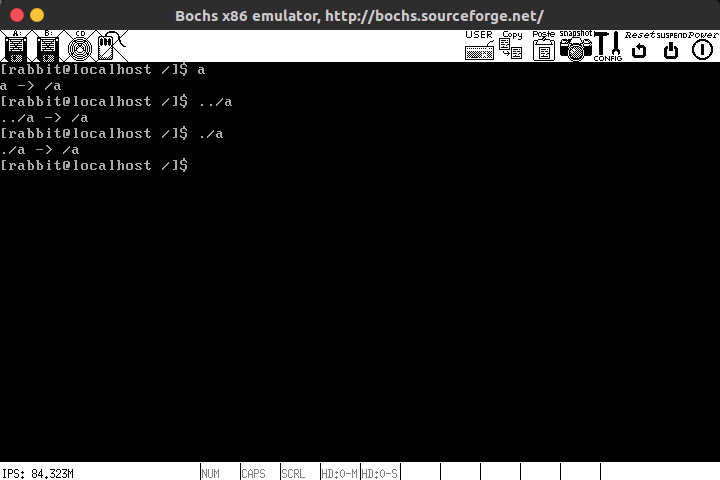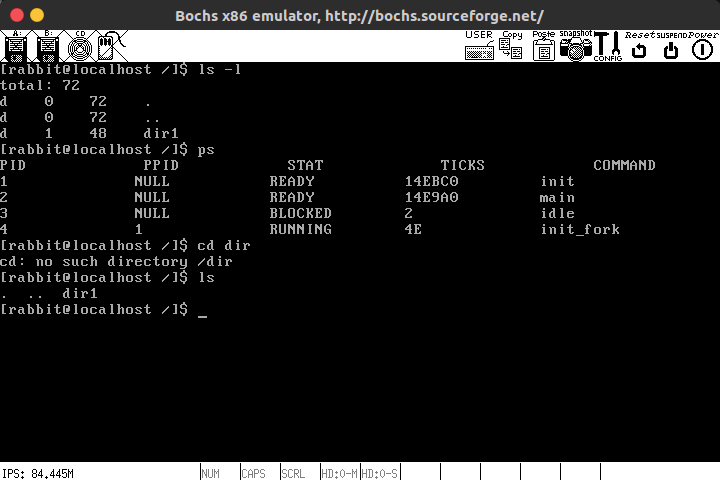1
2
3
4
5
6
7
8
9
10
11
12
13
14
15
16
17
18
19
20
21
22
23
24
25
26
27
28
29
30
31
32
33
34
35
36
37
38
39
40
41
42
43
44
45
46
47
48
49
50
51
52
53
54
55
56
57
58
59
60
61
62
63
64
65
66
67
68
69
70
71
72
73
74
75
76
77
78
79
80
81
82
83
84
85
86
87
88
89
90
91
92
93
94
95
96
97
98
99
100
101
102
103
104
105
106
107
108
109
110
111
112
113
114
115
116
117
118
119
120
121
122
123
124
125
126
127
128
129
130
131
132
133
134
135
136
137
138
139
140
141
142
143
144
145
146
147
148
149
150
151
152
153
154
155
156
157
158
159
160
161
162
163
164
165
166
167
168
169
170
171
172
173
174
175
176
177
178
179
180
181
182
| #include "keyboard.h"
#include "print.h"
#include "io.h"
#include "interrupt.h"
#include "global.h"
#include "stdint.h"
#include "ioqueue.h"
#define KBD_BUF_PORT 0X60
#define KBD_BUF_PORT 0X60
#define esc '\033'
#define delete '\0177'
#define enter '\r'
#define tab '\t'
#define backspace '\b'
#define char_invisible 0
#define ctrl_l_char char_invisible
#define ctrl_r_char char_invisible
#define shift_l_char char_invisible
#define shift_r_char char_invisible
#define alt_l_char char_invisible
#define alt_r_char char_invisible
#define caps_lock_char char_invisible
#define shift_l_make 0x2a
#define shift_r_make 0x36
#define alt_l_make 0x38
#define alt_r_make 0xe038
#define alt_r_break 0xe0b8
#define ctrl_l_make 0x1d
#define ctrl_r_make 0xe01d
#define ctrl_r_break 0xe09d
#define caps_lock_make 0x3a
struct ioqueue kbd_buf;
bool ctrl_status = false,shift_status = false,alt_status = false,caps_lock_status = false,ext_scancode = false;
char keymap[][2] = {
{0, 0},
{esc, esc},
{'1', '!'},
{'2', '@'},
{'3', '#'},
{'4', '$'},
{'5', '%'},
{'6', '^'},
{'7', '&'},
{'8', '*'},
{'9', '('},
{'0', ')'},
{'-', '_'},
{'=', '+'},
{backspace, backspace},
{tab, tab},
{'q', 'Q'},
{'w', 'W'},
{'e', 'E'},
{'r', 'R'},
{'t', 'T'},
{'y', 'Y'},
{'u', 'U'},
{'i', 'I'},
{'o', 'O'},
{'p', 'P'},
{'[', '{'},
{']', '}'},
{enter, enter},
{ctrl_l_char, ctrl_l_char},
{'a', 'A'},
{'s', 'S'},
{'d', 'D'},
{'f', 'F'},
{'g', 'G'},
{'h', 'H'},
{'j', 'J'},
{'k', 'K'},
{'l', 'L'},
{';', ':'},
{'\'', '"'},
{'`', '~'},
{shift_l_char, shift_l_char},
{'\\', '|'},
{'z', 'Z'},
{'x', 'X'},
{'c', 'C'},
{'v', 'V'},
{'b', 'B'},
{'n', 'N'},
{'m', 'M'},
{',', '<'},
{'.', '>'},
{'/', '?'},
{shift_r_char, shift_r_char},
{'*', '*'},
{alt_l_char, alt_l_char},
{' ', ' '},
{caps_lock_char, caps_lock_char}
};
void keyboard_init()
{
put_str("keyboard init start\n");
ioqueue_init(&kbd_buf);
register_handler(0x21, intr_keyboard_handler);
put_str("keyboard init done\n");
}
void intr_keyboard_handler(void)
{
bool ctrl_down_last = ctrl_status;
bool shift_down_last = shift_status;
bool caps_lock_last = caps_lock_status;
bool break_code;
uint16_t scancode = inb(KBD_BUF_PORT);
if(scancode == 0xe0)
{
ext_scancode = true;
return;
}
break_code = ((scancode & 0x0080) != 0);
if(break_code)
{
uint16_t make_code = (scancode &= 0xff7f);
if(make_code == ctrl_l_make || make_code == ctrl_r_make) ctrl_status = false;
else if(make_code == shift_l_make || make_code == shift_r_make) shift_status = false;
else if(make_code == alt_l_make || make_code == alt_r_make) alt_status = false;
return;
}
else if((scancode > 0x00 && scancode < 0x3b) || (scancode == alt_r_make) || (scancode == ctrl_r_make))
{
bool shift = false;
if((scancode < 0x0e) || (scancode == 0x29) || (scancode == 0x1a) || \
(scancode == 0x1b) || (scancode == 0x2b) || (scancode == 0x27) || \
(scancode == 0x28) || (scancode == 0x33) || (scancode == 0x34) || \
(scancode == 0x35))
{
if(shift_down_last) shift = true;
}
else
{
if(shift_down_last && caps_lock_last) shift = false;
else if(shift_down_last || caps_lock_last) shift = true;
else shift = false;
}
uint8_t index = (scancode & 0x00ff);
char cur_char = keymap[index][shift];
if((ctrl_down_last && cur_char == 'l') || (ctrl_down_last && cur_char == 'u'))
cur_char -= 'a';
if(cur_char)
{
if(!ioq_full(&kbd_buf))
ioq_putchar(&kbd_buf,cur_char);
return;
}
if(scancode == ctrl_l_make || scancode == ctrl_r_make)
ctrl_status = true;
else if(scancode == shift_l_make || scancode == shift_r_make)
shift_status = true;
else if(scancode == alt_l_make || scancode == alt_r_make)
alt_status = true;
else if(scancode == caps_lock_make)
caps_lock_status = !caps_lock_status;
else put_str("unknown key\n");
}
return;
}
|



